Why Ireland is the Achilles heel of the EU’s fightback against Big Tech
The recent controversies surrounding Big Tech moguls Elon Musk and Mark Zuckerberg — who are defying content moderation norms and accusing the EU of censorship — should come as no surprise to those following the tech industry closely. For over a decade, Big Tech has approached the EU's robust data protection framework as little more than a compliance checkbox, rather than a set of binding legal obligations.
Filter resources
-

Why Ireland is the Achilles heel of the EU’s fightback against Big Tech
The recent controversies surrounding Big Tech moguls Elon Musk and Mark Zuckerberg — who are defying content moderation norms and accusing the EU of censorship — should come as no surprise to those following the tech industry closely. For over a decade, Big Tech has approached the EU's robust data protection framework as little more than a compliance checkbox, rather than a set of binding legal obligations.
Read more
-

CSA Regulation Document Pool
This document pool contains updates and resources on the EU's proposed 'Regulation laying down rules to prevent and combat child sexual abuse' (CSA Regulation)
Read more
-

Unpacking digital fairness: What Europe must do now to end the tech industry’s most nefarious tactics
The EU plans to propose a Digital Fairness Act to better protect consumers from deceptive design practices, social media addiction, and pervasive online tracking. We unpack what this means and what the European Commission should do to end Big Tech’s most nefarious tactics.
Read more
-
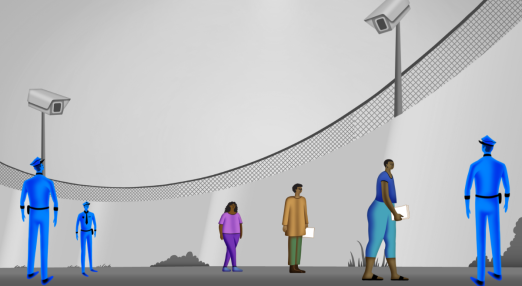
Deported for reporting a crime: the paradox of securitisation policies
The review of the Return Directive, which governs detention and deportation procedures in the EU, should not lead to the criminalisation of undocumented people. Rather, it should uphold their fundamental right to personal data protection by establishing firewalls that allow them to report crimes without fears of being deported.
Read more
-
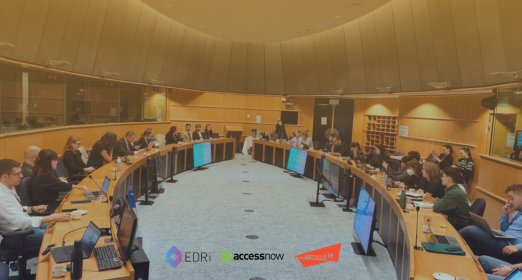
EDRi and members take EU decision-makers through 20 years of digital policy
This September, EDRi, Access Now and ARTICLE 19 took Parliamentarians through a rollercoaster ride of all things digital policy in the European Union. From the early internet and initial experiments in platform regulation, through more recent regulatory innovations, and finally to questions of security and surveillance, we shared a digital rights perspective of the good, the bad and the ugly of digital policy in the EU.
Read more
-
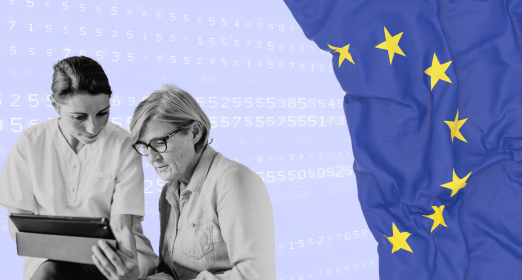
Rushed EU eID Wallet risks privacy and security: Calls for safeguards are getting ignored in hasty eIDAS implementation
From a visit to the doctor to public transport tickets , the European eID will handle our most sensitive personal data in a wide range of every-day applications. Yet, speed seems more important to the European Commission than a properly functioning eID system that is safe & secure to use.
Read more
-
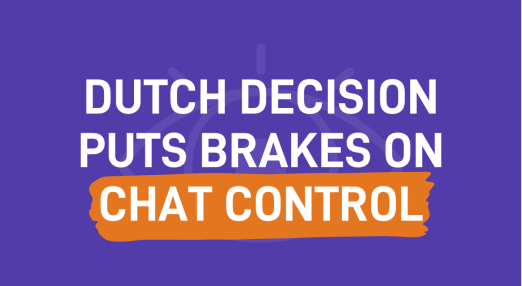
Dutch decision puts brakes on Chat Control
This controversial draft EU law has seen so many twists and turns that it’s giving us whiplash. Under renewed pressure from Hungary’s Viktor Orbán, some lawmakers had hoped they could finally get enough support for the controversial bill this autumn. But following a vital last-minute decision by the Netherlands, we are safe from “Chat Control” – for now.
Read more
-

Open letter: The dangers of age verification proposals to fundamental rights online
On 16 September, EDRi and 63 organisations, academics and experts in privacy, encryption, child safety, sex workers' rights and consumer rights issued a joint statement urging the European Commission to prioritise effective child safety measures while expressing serious concerns about the suitability, proportionality, and negative impact on fundamental rights of current age verification proposals.
Read more
-

What the arrest of Telegram’s CEO means for digital rights
French prosecutors have charged Telegram CEO Pavel Durov for illegal content disseminated by users of his platform and the company’s failure to cooperate with law enforcement authorities. EDRi is following this case with great concern, here is why.
Read more
-

Age against the machine: the race to make online spaces age-appropriate
The race is on to make online spaces age-appropriate, but children’s best interest is no Olympic sport. While the internet was not designed with kids in mind, children, teens and young adults are now spending more time online than ever. Parents use video-sharing platforms to show cartoons to their toddlers, while kids and adolescents play online games, engage in social media, learn through online modules, and fashion their identities through their online activities.
Read more
-

Council of Europe approves AI Convention, but not many reasons to celebrate
EDRi-member ECNL is not rejoicing at the adoption of Council of Europe’s AI Convention because of the significant flaws in the final text
Read more
-
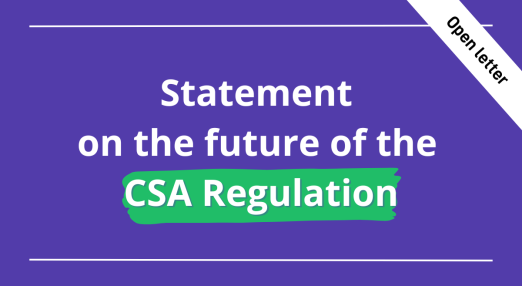
Joint statement on the future of the CSA Regulation
On 1 July, EDRi and 47 civil society organisations sent a joint statement to the Hungarian Council Presidency and a number of member state permanent representatives. We call on the Council and European Parliament to demand that the European Commission withdraw the draft CSA Regulation.
Read more
